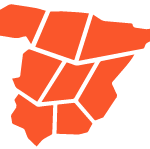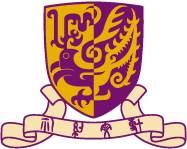Geography is a broad and integrated subject with many areas of specialization dealing with the physical environment and human society. Our curriculum maintains a good balance between the physical and human dimensions of geography and meanwhile emphasises on the geoinformation techniques mainly including GIS and remote sensing, as well as the topics of resource management and smart sustainable cities. As shown in the list of courses, our curriculum is divided into four concentration areas:
 Urban and Regional Development
Urban and Regional Development
Urban and regional development is a dynamic and uneven process. Within this concentration, there is a wide variety of courses addressing the dynamics of urban change, regional development and global economy, with special emphasis on the sustainable development in Guangdong-Hong Kong-Macao Greater Bay Area, China and Pacific-Asia. Through lectures, tutorials, organized field trips, as well as the use of both local, regional and international case studies, students examine the spatial organization of cities and regions, the world spatial economy, behaviours of individual agents, and collective choice in the form of urban physical planning. Courses within this concentration also emphasize the understanding of the effects of urban development, such as transport, housing, welfare and the location and relocation of economic activities in space. At regional scale, students are also exposed to different forces that contribute to development, including the globalization, the cultural dimension, population change and regional development policies.
 Physical Environment and Resource Management
Physical Environment and Resource Management
This concentration begins with a balanced introduction to hydrology, geomorphology, pedology, biogeography and climatology. Students are then exposed to more advanced study of environmental issues and the management of natural resources. Materials are generally taught in a system context and emphasis is placed on the integration of these various fields. Most courses also develop workshop, laboratory and/or fieldwork skills.
This concentration area enriches students with knowledge on various energy types and the methods, advantages and disadvantages of their utilization. Students will be exposed to different energy and environmental policies to understand their application and design. Furthermore, a particular focus of the training will be on the skills of critical thinking and in-depth analysis to employ the knowledge for finding solutions to real-world problems of resource and the environment.
 Geo-spatial Data Science
Geo-spatial Data Science
This concentration area provides students with a wide range of geographical techniques to process and analyze geo-spatial data. These basic geographical techniques are essential for a better understanding of all other subjects in human, physical and regional geography. Certainly, geographical techniques per se are interesting subjects for study.
For students interested in advanced techniques and their application in geographical studies, they can specialize in geographic information systems (GIS) and remote sensing. Most courses include interesting laboratory work offering hands-on experience to students. The Department is well equipped with advanced GIS and digital image processing systems for study and research.
 Smart Cities and Sustainability Governance
Smart Cities and Sustainability Governance
This concentration prepares students to harness digital innovation in creative and responsible ways to integrate sustainability considerations into urban governance. Contemporary cities face a wide range of challenges, including climate change, resource depletion, and socio-economic polarisation, that threaten the wellbeing of both their human and non-human communities. In this concentration, students will develop essential technical competencies in deploying smart technologies, from smart sensors to big data analytics, to deepen understanding of these issues and inform effective governance strategies. At the same time, the concentration cultivates students’ critical awareness of the social dimensions of the expanding use of smart technologies, including ethical concerns, governance frameworks, and economic interests. This dual focus ensures that students are equipped not only to implement technological solutions, but also to assess and navigate their wider impacts, thereby contributing meaningfully to the transition of cities toward more sustainable pathways of development.

